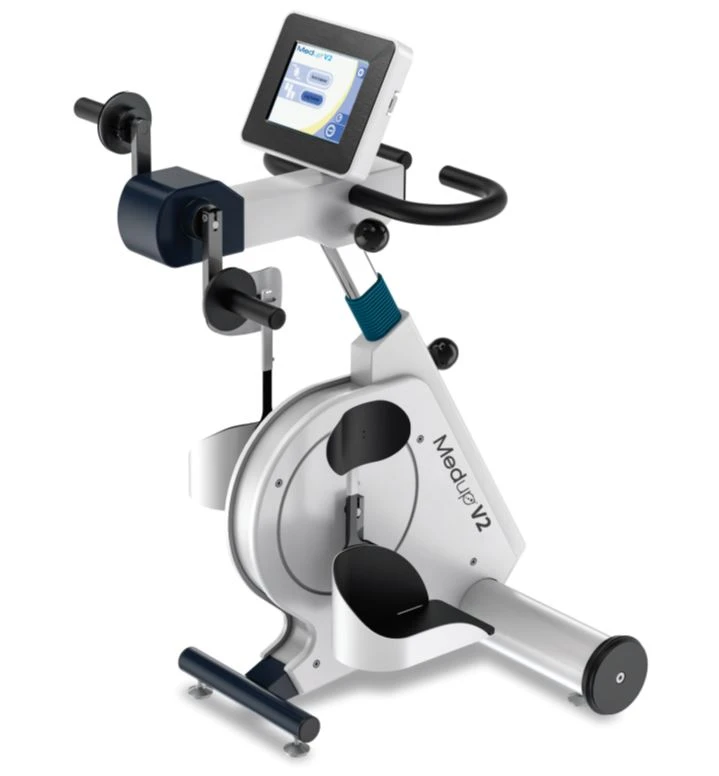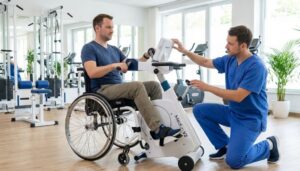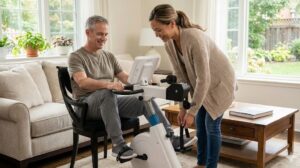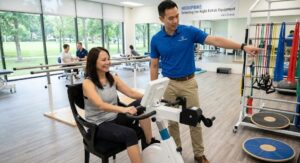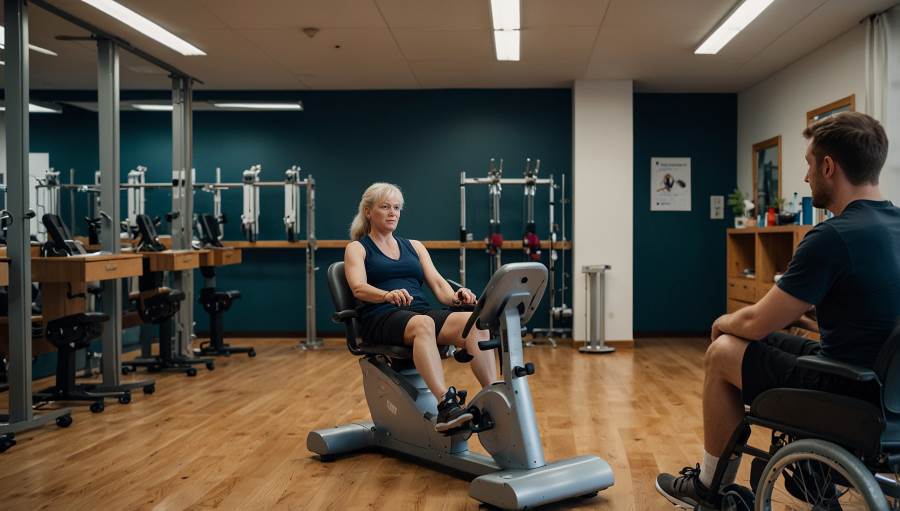
Physiotherapy clinics are always looking for ways to improve patient outcomes, optimize staff time, and differentiate their services. One of the most effective and increasingly popular tools in modern rehab settings is the advanced cycle trainer—a smart, motor-assisted exercise system designed to support a wide range of rehabilitation needs. Integrating this technology into your clinic isn’t just a value-add—it’s a practical move that can elevate your clinic’s capabilities, improve recovery timelines, and boost patient satisfaction.
Why Clinics Are Turning to Advanced Cycle Trainers
Motor-assisted cycling offers targeted, controlled movement that benefits patients with lower limb injuries, neurological conditions, or post-surgical limitations. But beyond the patient advantages, these devices streamline therapy workflows, allowing clinics to treat more patients efficiently without sacrificing quality.
Let’s break down how this technology transforms both patient care and clinic operations.
Integrating the MedUp V2 Cycle Trainer into physiotherapy clinics can result in a measurable boost in patient progress—especially in post-stroke recovery. It’s efficient, adaptable, and patients enjoy the experience. Inquire now.
1. Faster, More Effective Rehabilitation
Advanced cycle trainers support passive, active, and assisted cycling, allowing physiotherapists to tailor treatment intensity based on the patient’s needs. Whether a patient is regaining basic mobility or working on strength and endurance, the trainer adapts in real-time to their ability level.
Key rehab benefits:
- Improved circulation
- Muscle strengthening with minimal joint stress
- Reduced spasticity in neurological patients
- Enhanced flexibility and endurance
A clinical study in Frontiers in Neurology found that assisted cycling improves motor function in stroke patients and supports neuromuscular re-education. This underscores how vital such equipment is in modern rehab strategies.
2. Data-Driven Outcomes
Many cycle trainers include real-time feedback systems—tracking metrics like pedal speed, resistance levels, and duration. This data enables physiotherapists to monitor progress objectively and adjust rehab plans accordingly. It also helps boost patient motivation, as they can see tangible evidence of improvement.
Clinics can use this data to:
- Track long-term outcomes for reporting and funding
- Identify plateau points in rehab to change protocols
- Demonstrate measurable value to patients and stakeholders
3. Efficiency and Scalability for Clinics
Time is a limited resource in any rehab setting. These devices allow semi-supervised therapy sessions, enabling therapists to oversee multiple patients or focus on complex cases while others complete guided cycling programs.
This leads to:
- Increased patient throughput per therapist
- Reduced wait times for services
- Improved scheduling flexibility
For clinics offering specialized physiotherapy services (e.g., for neurological or geriatric patients), adding such equipment can help expand service offerings without increasing staff load.
4. Broad Patient Applicability
Cycle trainers with motor-assisted modes are ideal for diverse populations:
- Neurological patients: stroke, Parkinson’s, MS, spinal cord injuries
- Orthopedic patients: post-surgical knee/hip rehab, joint injuries
- Seniors: low-impact cardiovascular exercise with safety
- Wheelchair users: models with accessible designs allow inclusive use
Clinics looking to broaden their client base, including mobility-challenged patients, will find these devices align well with inclusive rehab models.
5. Enhanced Patient Engagement
Patients are more likely to stick with rehab programs when sessions are engaging and goal-oriented. Features like adaptive resistance, gamified feedback, and progress tracking improve compliance and motivation.
Benefits for patient retention:
- Higher attendance rates
- Greater satisfaction and word-of-mouth referrals
- Improved outcomes, driving clinic reputation
Why Advanced Equipment Matters for Your Clinic
Adding an advanced cycle trainer to your physiotherapy center is more than just upgrading equipment—it’s an investment in better outcomes, greater efficiency, and patient-centered care. It helps your clinic stand out while delivering real value to your clients.
Looking to improve your rehab capabilities? Discover how wheelchair-accessible, motor-assisted cycling systems can support your clinic’s success via rehabilitation solutions.
